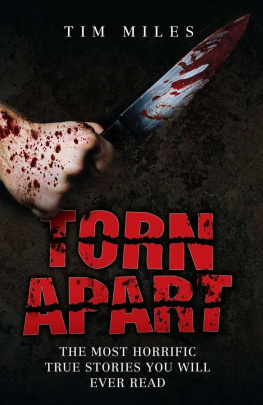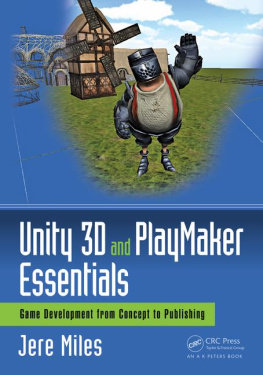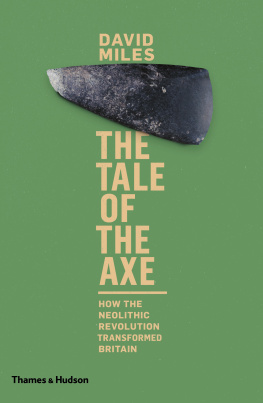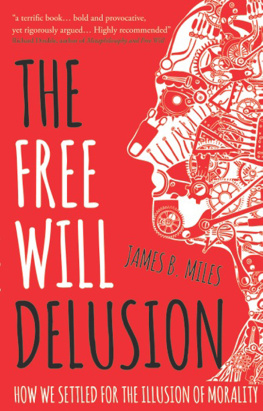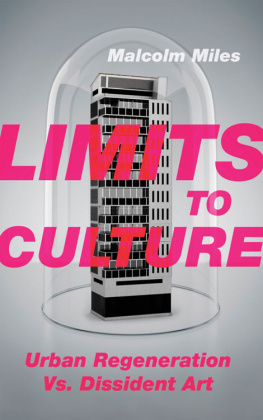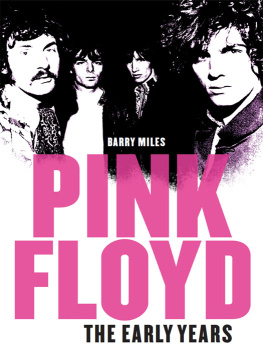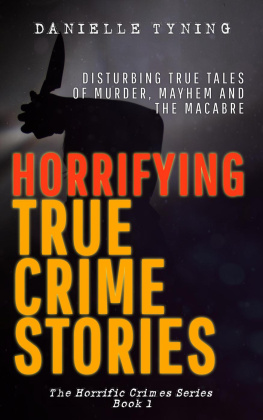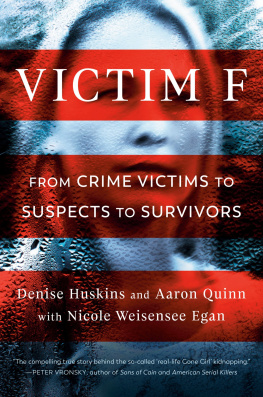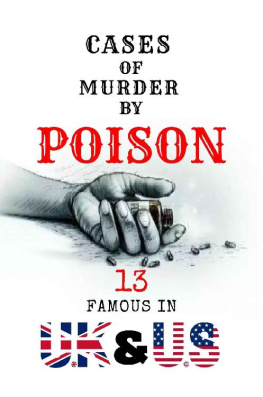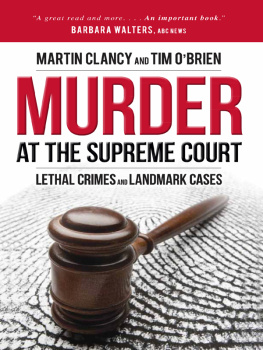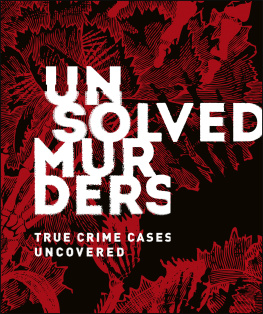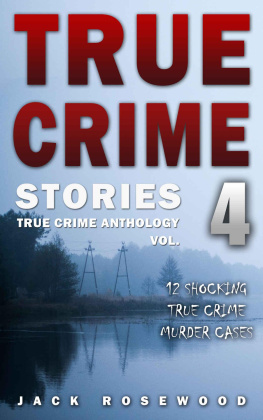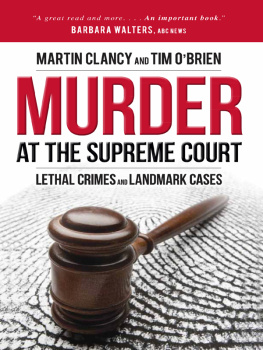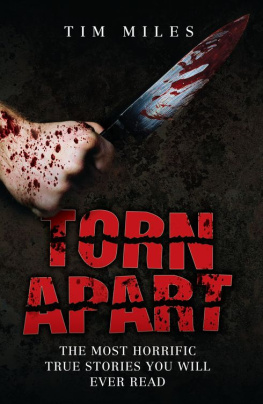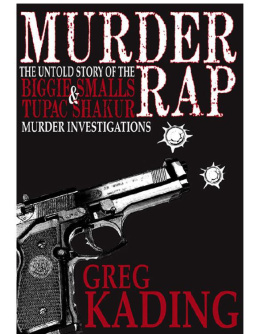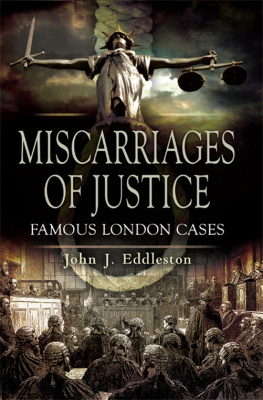To my wife Wendy, without whom
CONTENTS
PREFACE
T he glorification of the criminal is a multimillion-pound industry. TV series, movies, books and newspapers feed the obsession with predators whose grotesque acts have earned them a lucrative notoriety. A quick trawl through the murkiest corners of the internet reveals literally thousands of websites dedicated to charting in intimate detail the twisted and brutal lives of the infamous.
For decades in which the rights of the criminal have taken precedence over those whose lives they destroyed, new laws in Britain based on the experience of the American courts allow the families and partners of crime victims to tell judges and juries of the devastating impact wreaked by acts of evil.
The repercussions of impassioned victim impact statements are being felt across all sections of society.
As a crime reporter and a former US correspondent for national newspapers, I covered a number of notable trials in Britain and America over thirty-five years, ranging from the most savage of murders to terrorist atrocities, abductions and rapes.
One clear recollection is that of a sexual psychopath accused of raping, mutilating and murdering a young girl in south London. For over a month within the confines of the Old Bailey, I got to know her father well over cups of tea in the courthouse canteen.
He was in despair at how the killers defence counsel had muddied the waters, using every legal manoeuvre and exploiting every loophole in a bid to secure an acquittal for his client.
What caused the father added anguish was how his daughter had become a mere sideshow in the trial, a victim with a crime reference number but no voice. To the prosecution and the defence, she was the subject of dry, unemotional legal dissection. Nothing of her character emerged from the trial. Moreover, the searing loss felt by her family was never explored.
Justice was dispensed, the police closed their files, and the days dramatic headlines quickly faded from public memory.
After the verdict, the father told me, with tears in his eyes, No one in that courtroom learned what she was like, the person she was, her very essence, her spirit. The whole clinical process in a way dehumanised her further. She was just another faceless victim. I wanted to tell everyone what we had lost a loving, generous, talented, beautiful daughter, someone who would have made a vital contribution to society, someone whom we deeply loved. I wanted them all to understand what had been taken from us.
It would have taken a hard heart not to share his sense of rage and despair at the inequalities of the system.
During the 1980s and 1990s I watched with great interest as the US government effected nationwide legislation allowing victims relatives to have their say during the sentencing phase of the trial.
The system there has its vocal critics. Defence lawyers and jurists have argued that an emotional victim impact statement to the jury prior to sentencing can make all the difference between a criminals incarceration for life or his execution. The sight of a weeping relative burning with retribution is, say some detractors, enough to persuade a jury to hand down a death sentence.
Yet, as the voices of the bereaved echo across a courtroom, their raw passion has struck a resounding chord. From Britain and abroad, I have focused on those victim impact statements whose acute poignancy and soaring, narrative power bring to life those they have lost. In many cases, their notable campaigns for justice have made the world a safer and better place for their fellow citizens, often at a high personal price.
Lying at the heart of this new approach to victims is the ability to personalise them so that we are left not only believing we did share part of their lives but also that their stories, their hopes and their dreams left a lasting legacy. That the deaths of loved ones created lightness out of the dark. That out of evil came a force for good.
CHAPTER ONE
IVE DONE EVERYTHING I COULD FOR YOU
W eary from her night shift delivering pizzas, Julie Hogg slumped down on the sofa and kicked off her shoes. Twenty-two years old, she was a pretty dark-haired girl and a popular figure in Billingham, a gritty industrial town in Englands northeast, where she had grown up in a landscape dominated by a giant chemical ammonia plant and petrol refineries snaking along the River Tees.
Julie was typical of the areas 35,000 residents, prepared to put in unsocial hours to make enough money to get by, a hardscrabble existence that forged in her a desire to better her life. Despite her looks, she was tough and capable. Her job took her down some mean streets but she always managed to defuse trouble with a cheeky smile and warm laugh. Julie, said her friends, was a down-to-earth lass with an independent, defiant streak.
At 1.25 a.m. on 16 November 1989, a workmate dropped her off at her Grange Avenue home at the end of the long night at the nearby Mr Macaronis pizzeria. Julie waved goodbye and let herself through the door, and then vanished from the face of the earth.
But what started that day as a routine missing-person enquiry was eventually to culminate in one of most radical changes in British law for over 800 years. The name of Julies indomitable mother, Ann Ming, was for ever to become a symbol of finally achieving justice in the face of overwhelming odds.
Ann, a nurse for twenty years, had telephoned Julie that day at 7.30 a.m. A close-knit family, they would speak on the phone up to twenty times a day and, as was often the case, Ann and her husband Charlie, a heavy-goods fitter, looked after their daughters three-year-old son Kevin while she was at work.
Ann wanted to make sure that her daughter was up and ready to attend an important county court hearing. Julies marriage to Andrew Hogg had fallen apart amid acrimony and she was seeking a legal separation from him.
The phone kept ringing unanswered. I knew almost straightaway something was wrong, recalls Ann. I was going to pick her up at 9 a.m. and take her to the court. However tired she felt, she would have answered the phone. It wouldnt be like her to miss an important appointment. I knew shed been working late and I knew she wouldnt have gone out or stayed somewhere else after work.
With her heart in her mouth, Ann drove round to the house with her grandson in tow. She banged on the door and frantically shouted through the letterbox before racing to a public phone box and calling her again. When she again got no answer, she banged on the door of a neighbour, only to be told she hadnt seen Julie. Still unable to get a response, she fearfully persuaded her son Gary to leave work to force his way into the house by breaking through a window panel in the back door. The silence was ominous. Little Kevin, sensing the air of panic, burst into tears, crying for his mum.
Ann remembers: The house was tidy and the curtains closed. Gary said to me, Theres something wrong in here, Mum. Julies messy and the house looks really tidy. Her bed is made and all the washing is put away.
We couldnt find Julies keys. I felt sick inside. My gut feeling told me something was desperately wrong. I asked the police if there had been any traffic accidents. Nothing had been reported. They just suggested I went home and waited to hear from her.
Yet Ann could not rest until she knew her daughter was safe. I went to the pizza place where Julie worked. They told me shed been dropped off at home at 1.30 a.m. I felt rising panic and fear. I felt even worse then.
At first the police were dismissive of Anns fears, suggesting that given the rocky marital background, Julie had probably left home to start a new life. One woman officer even hinted that Julie might have got drunk in a nightclub and didnt get home, implying she might be asleep with a stranger after a one-night stand.

